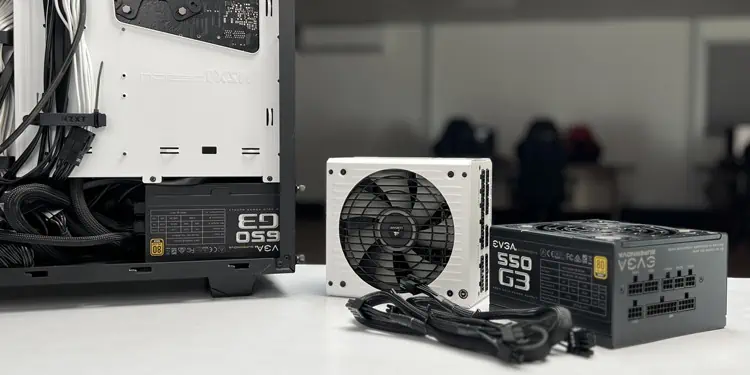Upgrading your power supply unit is not necessary at all unless you’re overloading it—either by using high-power components or overclocking. That being said, there are still some signs that indicate you require an upgrade.
To determine if your PSU needs a replacement, check whether the system’s power requirements surpass or come close to the PSU’s wattage. If it lacks sufficient wattage headroom, consider getting a new one. Similarly, upgrading might be necessary if the PSU frequently restarts, overheats, or produces abnormal noises.
You are Planning to Upgrade/Overclock Components
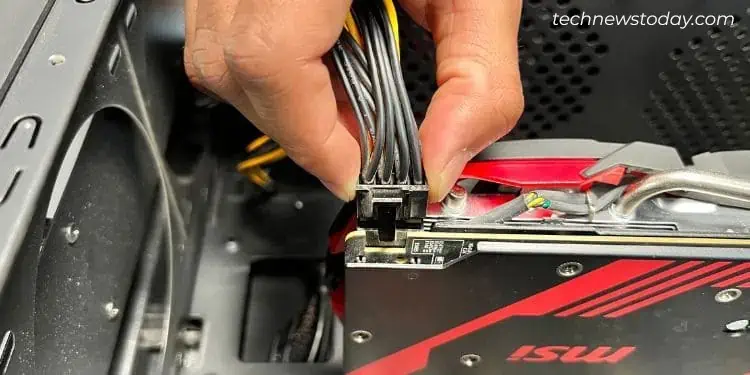
Are you planning to add or upgrade a hardware component to your setup soon? If so, a power supply upgrade should also be on your list.
Quickly go to PCPartPicker and find the power requirement for your upgraded build. If the new version of your build doesn’t demand significantly more power than the current build, you are good to go. But if the power draw increases substantially, make sure the current PSU can handle those new components.
For instance, assume that your system has a power requirement of 525 watts (225 watts for an RTX 2080 GPU and 300 watts for the rest of the system.) In this case, if you have a 650W PSU, it will do its job. But if you plan to upgrade to an RTX 3080 (that consumes 320 watts plus at its peak,) you need to get a 750W+ PSU to ensure smooth performance.
In the same way, also remember that PSU upgrades are necessary if you are into overclocking.
Do note that you might encounter frequent PSU restarts or blue screen errors if power draw from your system surpasses the actual power rating of the PSU.
You Hear Abnormal Noise From PSU
PSUs are not supposed to make abnormal noises when operating. Yes, you may hear the gentle sound of airflow when you are close to the PSU, but nothing more than that; no clicking or buzzing noise.
If you’re dealing with a loud fan, it might be time to clean your PSU. It’s also possible that the fan’s bearings have worn out.
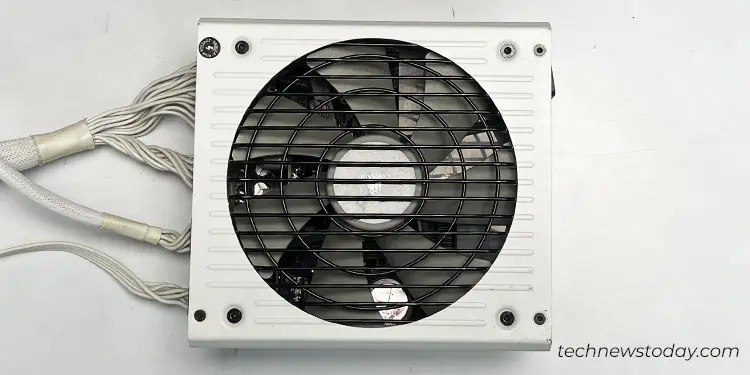
Clicking and Buzzing issues are generally fixable and do not need upgrading, but the situation can be more scary! In my case, the power supply used to overheat. It caused a short circuit on the PSU, and I had no option but to replace it.
PSU is Aging
To be honest, if you have a PSU from a reputable manufacturer, aging doesn’t have a significant impact on its performance. But yes, it is a matter of concern if you own a cheap or low-end PSU from an untrustworthy supplier.
The electronic components, like capacitors used in such PSUs tend to deteriorate quicker, causing system instabilities and performance issues.
Branded PSUs normally have a warranty period of 5 to 7 years, which also means they will operate correctly within this timeframe. For instance, you can see my EVGA Supernova 550 G3 that came with a 7-year warranty.
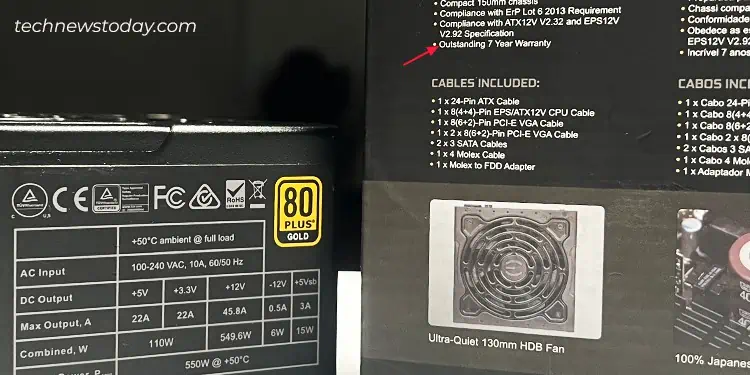
But it does not necessarily mean that the power supply will be unusable after the specified time. Since it’s from a reputable brand, I expect it to work for decades in an optimal usage pattern and working environment.
On the flip side, a low-end PSU may not even operate correctly for the claimed warranty period.
So, if you are planning to add a high-end component to your system, like graphic cards, consider getting a new power supply. The older one might not do the job correctly.
Other Signs to Consider
In addition to the key factors we’ve covered above, there are a few more signs that could indicate the need for a PSU upgrade. Here’s a checklist for you to go through.
Check PSU fans: To begin with, check if the PSU fan is rotating normally. Unless your power supply has an Eco Mode or Hybrid fan mode, the fan should keep rotating, no matter the temperature or load on the PSU.
Feel exhaust air temperature: Try to feel the exhaust air from the PSU vents. Is that intolerably hot? Here’s our comprehensive guide to fix an overheating power supply.
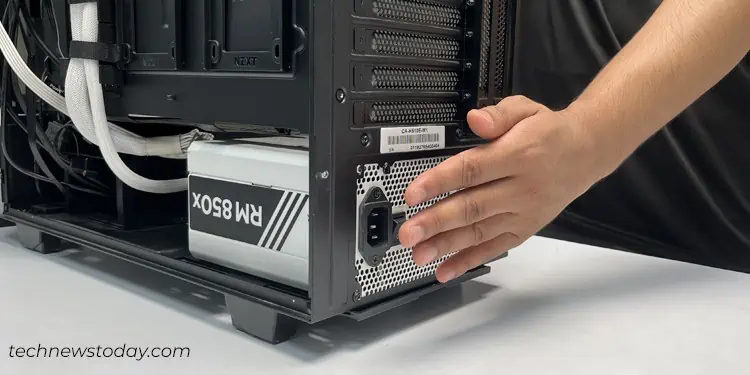
Beware of electric shocks: If you experience electric shocks while touching the PC case, there is probably a short circuit or current leakage within the PSU.
Notice unusual smell: Do you feel unusual smells like burning wires near your PC? Immediately disconnect the PC from the wall outlet to avoid potential fire hazards. This strongly indicates a failing PSU that requires upgrading.
Aiming for greater energy efficiency: Upgrading might also be necessary if you seek a PSU with better power supply efficiency. It not only helps reduce power consumption but also reduces your electricity bill in the long run. Here’s a quick guide to help you decide between an 80 PLUS Gold or 80 PLUS Platinum PSU.
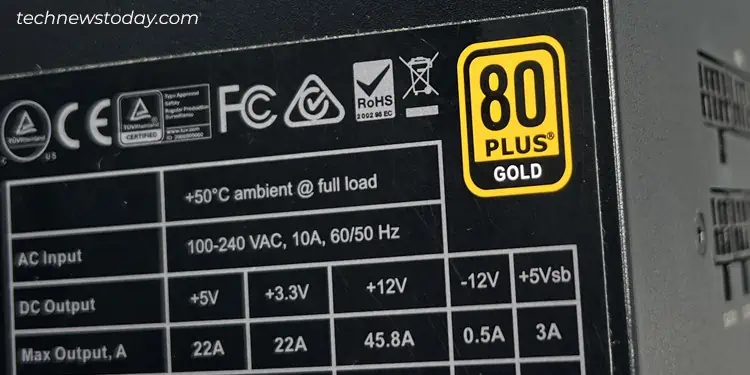
Looking for a branded model: Consider getting a PSU from a reputable brand if you currently have a low-quality one and consistently face system instabilities. Reputable manufacturers like Corsair, EVGA and Seasonic have a high-quality build with better customer support.
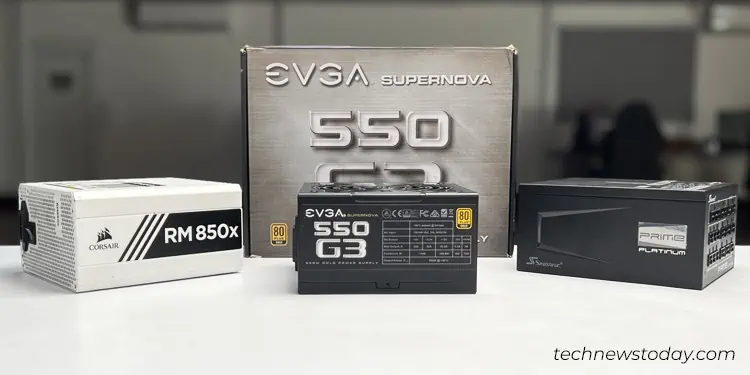
I recommend you invest in a high-wattage, high-quality, and a better-efficient PSU if you have further plans to upgrade your system in the future.

